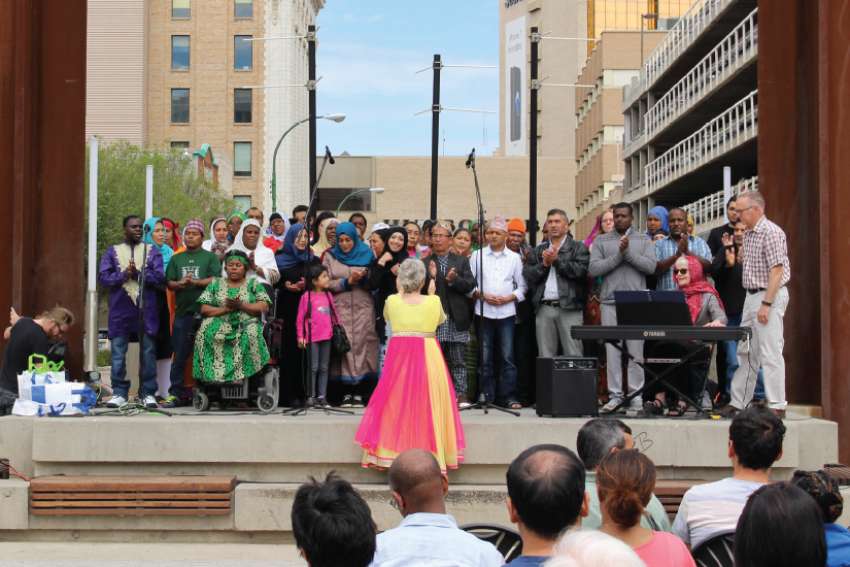Apparently she hasn’t reconsidered enough. After all, she’s endured each winter since 2002 in Regina after relocating from her native Senegal in west Africa. And in those years, she’s helped others who have followed along the same path in calling the Canadian Prairies home. She is the community connections co-ordinator for the Regina Open Door Society.
Dabo was invited to Campion College, the Jesuit undergraduate facility at the University of Regina, to speak on the society’s involvement in helping newcomers find a place — and a home — in Regina. It’s an especially apt topic for this campus, where 14 per cent of the students come from outside Canada.
She delivered her talk as part of Campion’s “In Regina” speaker series during the college’s “Love Your Neighbour” Week.
“The biggest challenge is trying to remain on that settlement path while trying to (adapt) to the weather and the cultural barriers that are found here,” said Dabo in an interview.
“A person coming into Regina now is basically in a new world. So the challenge they have (in settling), they have a limited timeframe, they want to integrate into society.”
It’s not easy, she said. Even a fellow Canadian trying to make the adjustment from rural Saskatchewan or from outside the province to a city like Regina will tell you that. For an immigrant, it truly is a whole new world.
That’s where the Regina Open Door Society comes into play — “so the transition becomes as smooth as possible.”
A common misperception of a city like Regina is that it is not heavily populated by immigrants. Sure, there are plenty of second-, third- and fourth-generation Canadians, but immigrants? The latest census, however, shows about 16 per cent of the city’s population is made up of people who’s mother tongue is not English, French or an Aboriginal language. Take a walk through a mall or along a downtown street and you will see and hear all the proof you need.
The university itself is a picture of this diversity. It has a large international population and has long embraced that diversity with its aim to create community and be a welcoming space for people of all backgrounds while preparing its students for the reality that they are part of a bigger world. This goes hand-in-hand with the Jesuit aim of finding God in the other.
Dabo sees the university as a good fit for what the Regina Open Door Society is trying to do, and appreciates Campion reaching out to gain more cultural awareness.
“We do have a lot of similarities and services that we offer and we try to reach out as much as possible to try to be in partnership,” she said. “We’re working to as much as possible make it a smooth partnership to move forward.”
Dabo sees the size of Regina as a plus in helping immigrants find a home. A major city, and the capital of Saskatchewan, it still has a small-town feel to it.
Though Regina is growing, its population remains under a quarter million (236,481 according to the 2016 census).
That means newcomers more often come in contact with familiar faces.
Service providers for immigrants also collaborate in closer ways in a small town and “that eliminates some of the stress. That is a big thing,” she said.
(Conlon is a writer in Regina.)


